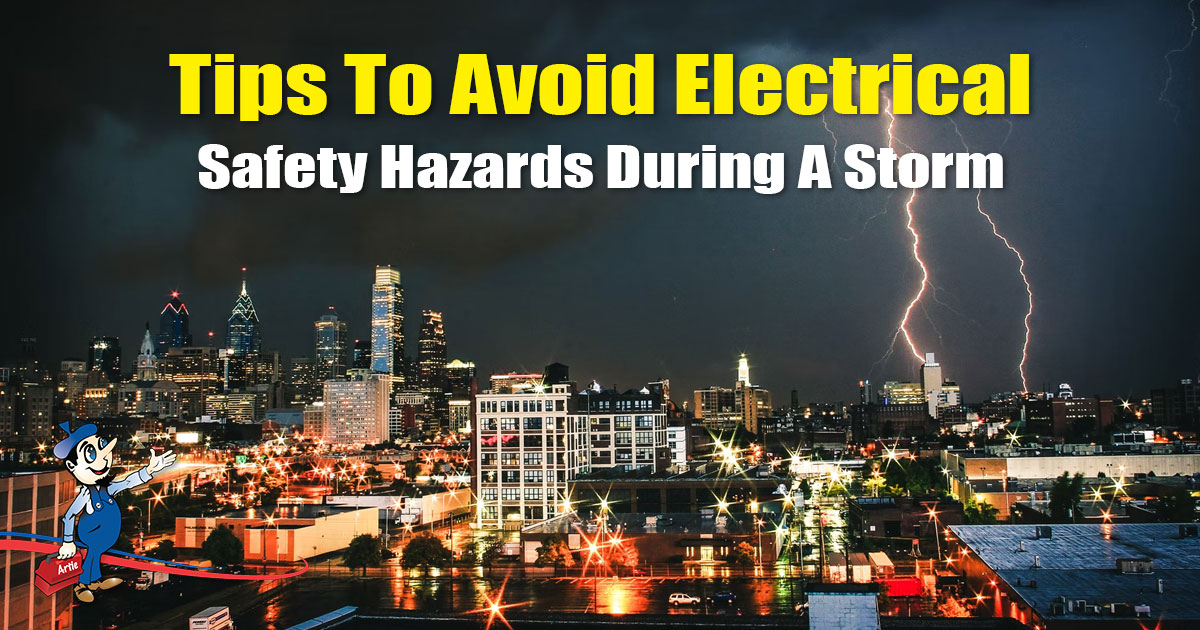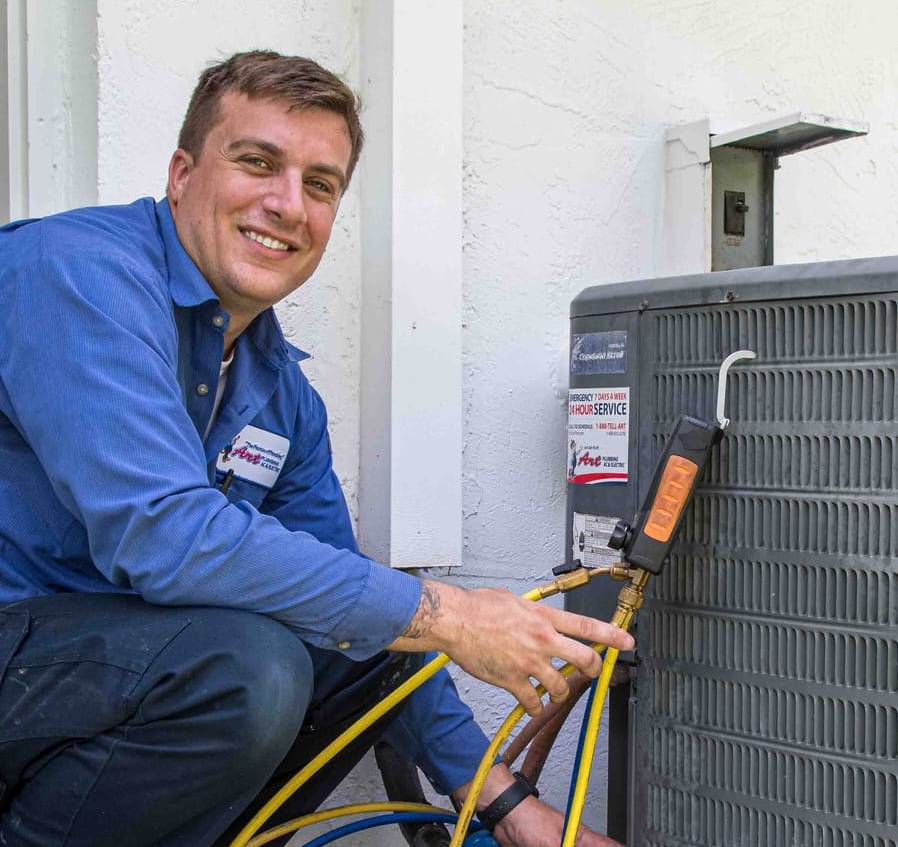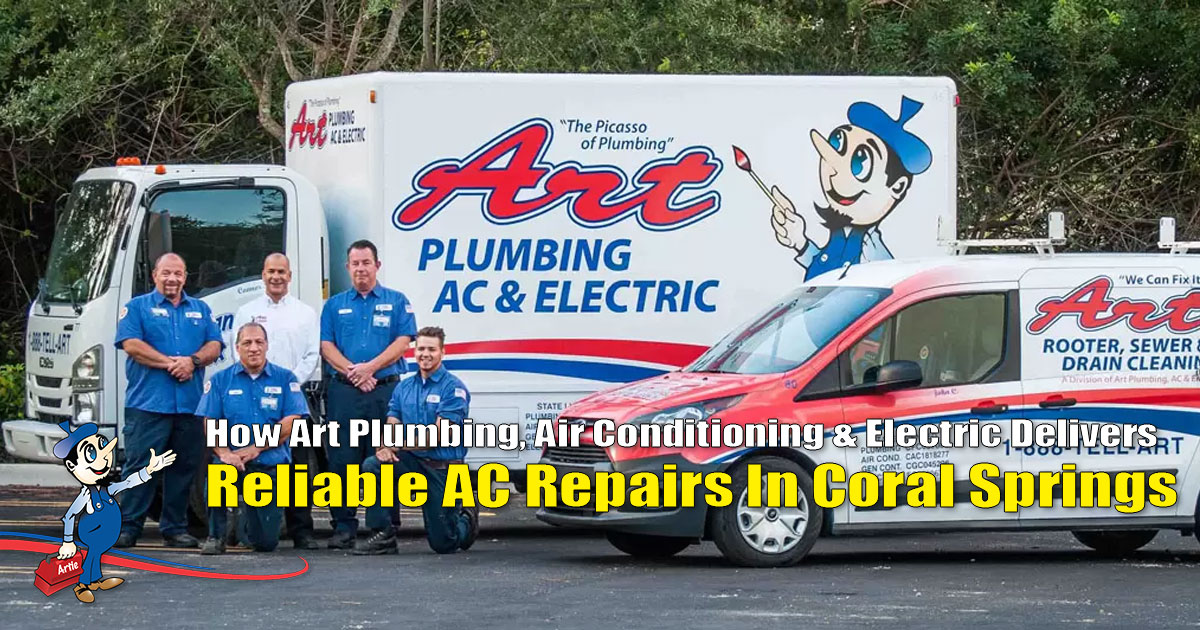Tips To Avoid Electrical Safety Hazards During A Storm

Any resident of Florida will testify to the damage and destruction a severe storm can leave in its wake. Most of you will already have a variety of safety checklists and evacuation plans in place, but have you considered the electrical hazards you may encounter during a storm?
A severe natural disaster also comes with a variety of potential electrical safety hazards. Everyone knows how to stockpile essentials and put hurricane shutters up on windows and doors, but do you know how to approach electrical damages? Do you know what to do if your electrical appliances are submerged in the floodwater, or whether or not you can bathe while there is lightning?
Let’s examine some of these electrical safety hazards more closely…
Electrical Safety During a Storm
Even though most people know how to prepare for our stormy seasons, not many are familiar with the electrical dangers that can occur during/after any storm. Three natural elements could cause electrical safety issues, and all three have different dangers attached.
The three elements are:
- Lightning
- Floods
- Wind
Electrical Safety When There Is Lightning
Lightning storms can look spectacular, and no one would blame you if you were mesmerized. To avoid the risk of electrocution though, there are a few things you should do before you admire the storm:
- Unplug all electrical appliances when you hear the first thunderclap. Appliances could suffer damage if connected to the electrical circuit during a lightning storm.
- Water is a very good conductor of electricity. To minimize any risk of electrocution, avoid any contact with water, plumbing, sinks, or faucets whenever possible during a storm. DO NOT bathe or shower during a lightning storm.
- Avoid using any electrical equipment like computers and corded phones (yes, people still have them) that are in direct contact with the electrical circuit, while there is lightning.
Electrical Safety During/After A Flood
Flood water often transports chemicals, oil, and debris. All these could damage the electrical circuit and electrical appliances. Try to unplug and elevate any electrical appliances or equipment if you think the water level may rise.
All electrical appliances that come in contact with water, especially if they were submerged, must be examined by a professional electrician before use. If they came into any contact with water, a qualified electrician must inspect:
- Circuit breakers
- Fuses
- Plugs
- Outlets
- Switches
- Ground Fault Circuit Interrupters
Electrical Safety During Strong Winds
Strong winds and flying debris cause general havoc, especially if power lines are damaged. Damaged power lines, especially if any cables are laying on the ground, are extremely dangerous and should not be touched. We cannot stress that enough. Only licensed, skilled professionals should deal with damaged power lines.
The human body is a very good conductor of electricity, so if you come across damaged power lines:
- Report them as soon as possible
- Do not drive over them
- Do not touch them or attempt to move them, especially if they are near water.
- If someone has been electrocuted by a power line, whether they are still in contact with the cable or not:
- Call 911 immediately.
- Stay at least ten feet away. Reassure them if they are conscious but do not touch them or try to move them.
Have A Pre-Storm Electrical Safety Plan
The saying, “prevention is better than cure” is very relevant when it comes to electrical safety during a storm. If you have an electrical safety checklist that you can check off before a storm, you can minimize the risk of dangerous electrical safety hazards during and after a storm.
Some things you should include on the checklist are:
- Install electrical safety switches that are tested regularly.
- Have a safe, dry place where you can store electrical appliances and equipment during a storm. This area should be elevated if possible. The whole household must know where this area is, so they can move things quickly if necessary.
- Everyone in the home must know how to turn the main power off in an emergency.
- Everyone must know what they can and cannot do during a storm e.g., everyone must know that they cannot shower or bathe.
- Have a list of all indoor and outdoor electrical equipment and appliances that will need to be unplugged or moved during a storm. Having a list you can all refer to, minimizes the risk of something being forgotten.
- Everyone must have basic First Aid knowledge, and especially know what to do if someone gets electrocuted.
Art Plumbing, AC & Electric Are Here for You During Any Storm
If you want to prepare an electrical safety checklist, or need your electrical circuit inspected before or after a storm, Art Plumbing, AC & Electric are waiting for your call. Our qualified, experienced, licensed, and insured technicians can be reached at 1-800-475-1504 Monday to Saturday from 8 am to 6 pm, and on Sunday for emergencies.



